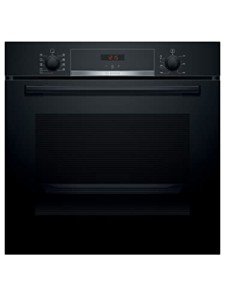Guide To Builtin Ovens: The Intermediate Guide The Steps To Builtin OvвА¶
л≥ЄлђЄ
The Rise of Built-in Ovens: Enhancing Modern Kitchens
In the ever-evolving world of home improvement, built-in ovens have become a staple in modern kitchen style. These appliances not just use a streamlined and smooth visual but likewise contribute significantly to the performance and performance of home cooking. This article delves into the different elements of built-in ovens, including their advantages, types, setup factors to consider, and maintenance, along with frequently asked questions to supply a detailed overview.
What is a Built-in Oven?
A built-in oven is an appliance developed to be installed into kitchen cabinets, giving it a structured look and freeing up counter area. Unlike traditional freestanding ovens, which stand alone and are frequently bulky, builtin Oven built-in ovens fit flush with cabinets for a more integrated hob and oven appearance. They are offered in numerous sizes, styles, and functions, accommodating a wide variety of cooking needs and kitchen designs.

Advantages of Built-in Ovens
Built-in ovens featured various advantages that make them appealing to homeowners. Below are some of the key benefits:
- Space Efficiency: built in ovens for sale-in ovens save counter space while enhancing kitchen layouts.
- Customizable Design: They can be integrated into cabinetry, permitting homeowners to customize aesthetics according to personal taste.
- Enhanced Performance: Many built-in ovens come geared up with sophisticated cooking technologies, permitting better heat distribution and faster cooking times.
- Accessibility: Their setup at eye level makes it easier to check food without flexing down, supplying greater benefit and safety.
- Resale Value: A modern-day, properly designed kitchen can improve property worth, making built-in ovens an investment worth thinking about.
Types of Built-in Ovens
Built-in ovens can be categorized based upon their style and function. The following list lays out the common types of built-in ovens available on the marketplace:
- Single Ovens: A standard design that features one cooking compartment.
- Double Ovens: These featured two different compartments, which enable cooking multiple meals at various temperature levels.
- Wall Ovens: Installed into the wall for a space-saving option, these ovens offer benefit and accessibility and can be either single or double.
- Steam Ovens: These utilize steam for moist cooking and are often favored for healthier meal preparation.
- Convection Ovens: Designed with a fan that flows hot air, guaranteeing even cooking and browning.
| Type | Description | Suitable For |
|---|---|---|
| Single Oven | One cooking compartment for basic baking and roasting. | Small families and kitchens. |
| Double Oven | Two compartments for simultaneous cooking of different meals. | Large households with varied menus. |
| Wall Builtin Oven (Http://Www.4Mbs.Net/) | built in oven into the wall for simple gain access to. | Space-conscious cooking areas. |
| Steam Oven | Cooks utilizing steam for much healthier options. | Health-conscious individuals. |
| Convection Oven | Flows hot air for even cooking and quicker outcomes. | Baking enthusiasts and chefs. |
Installation Considerations
Picking to install a built-in oven includes numerous considerations to ensure that it fits flawlessly within the kitchen. Crucial factors include:
- Cabinet Dimensions: Accurate measurement of the cabinet area needed for the oven is crucial for an appropriate fit.
- Power Supply: Built-in ovens generally require a dedicated power supply; seeking advice from a certified electrical contractor might be needed.
- Ventilation: Ensure that the oven's ventilation requirements are satisfied to promote safe operation.
- Regional Building Codes: builtin oven Compliance with regional codes is important when setting up any kitchen appliance.
It's highly recommended that installation be performed by professionals to make sure safety and adherence to producer requirements.
Maintenance of Built-in Ovens
Keeping built-in ovens is important to ensure their longevity and operation. Below are some tips for effective maintenance:
- Regular Cleaning: Wipe down surfaces after each use to avoid accumulation; think about self-cleaning choices if available.
- Inspect Seals: Inspect the oven door seals regularly for wear and tear to preserve efficiency and prevent heat loss.
- Calibrate Temperature: Occasionally check and change oven temperature settings if cooking outcomes are irregular.
- Expert Servicing: Schedule regular maintenance with certified professionals for electrical elements and much deeper cleansing.
Regularly Asked Questions (FAQs)
Q1: How do I select the best size built-in oven for my kitchen?
A1: Measure the available cabinet area and consider the cooking routines of your home. Single or double ovens prevail options based upon meal preparation needs.
Q2: Are built-in ovens more energy-efficient than freestanding ones?
A2: Built-in ovens can be more energy-efficient due to better insulation and advanced cooking technology; however, actual effectiveness depends on the particular design and usage.
Q3: Can built-in ovens be set up throughout the kitchen?
A3: Built-in ovens require specific cabinetry and may require a dedicated power source, so preparing their positioning carefully within the kitchen layout is important.
Q4: What kind of upkeep do built-in ovens require?
A4: Regular cleansing, inspecting door seals, adjusting temperature levels, and expert maintenance as needed are all parts of proper maintenance.
Built-in ovens are an impressive addition to modern kitchens, using both aesthetic and useful benefits. Their space-saving style, personalized choices, and advanced functions cater to varied cooking requirements. When considering a built-bulit in oven oven, property owners ought to take into consideration their specific culinary preferences, kitchen layout, and upkeep capabilities. By doing so, they would be making a valuable investment in their home, increasing both functionality and style.

лМУкЄАл™©л°Э0
лМУкЄА нПђмЭЄнКЄ мХИлВі